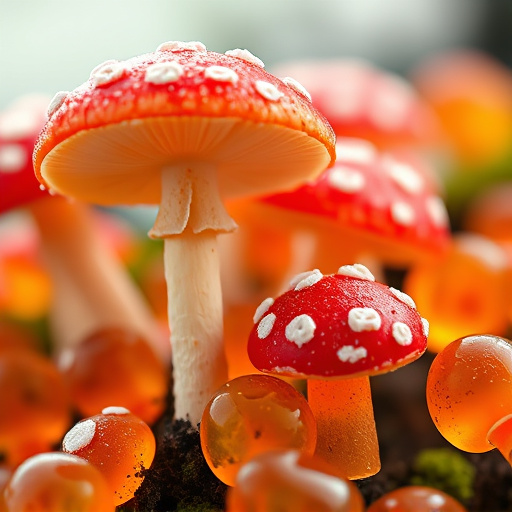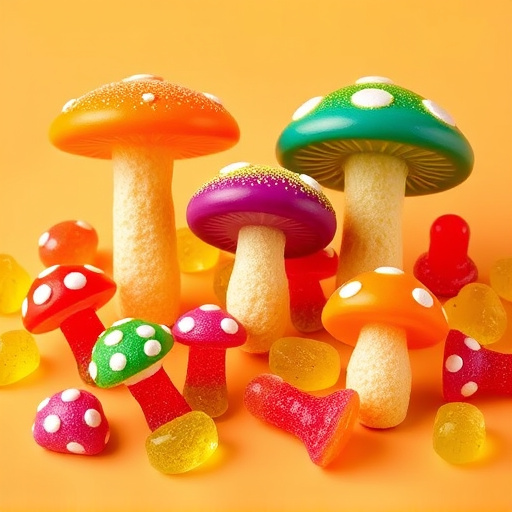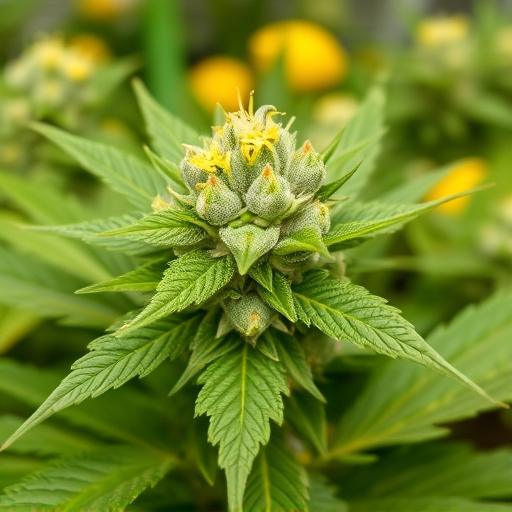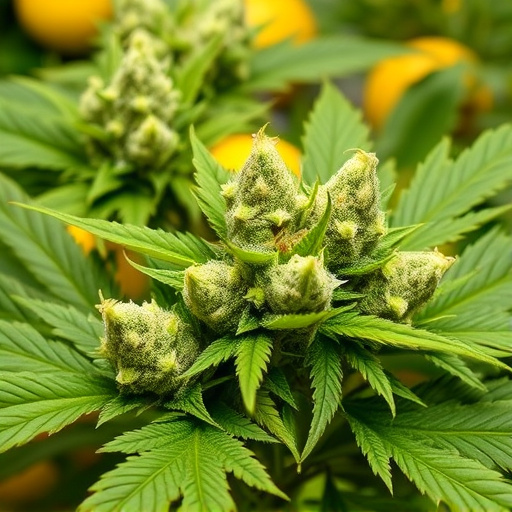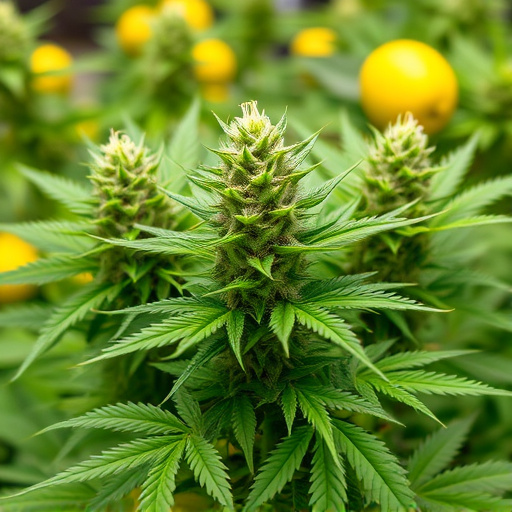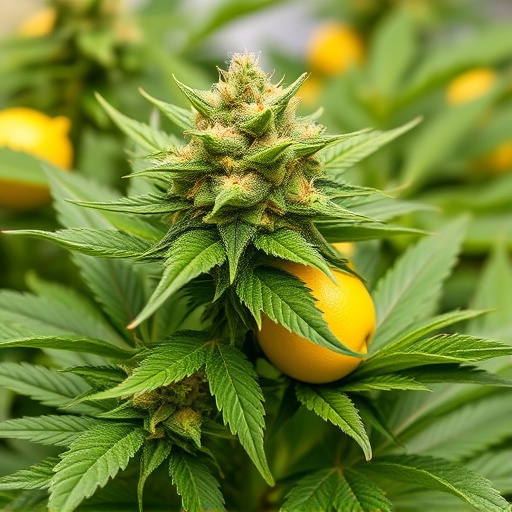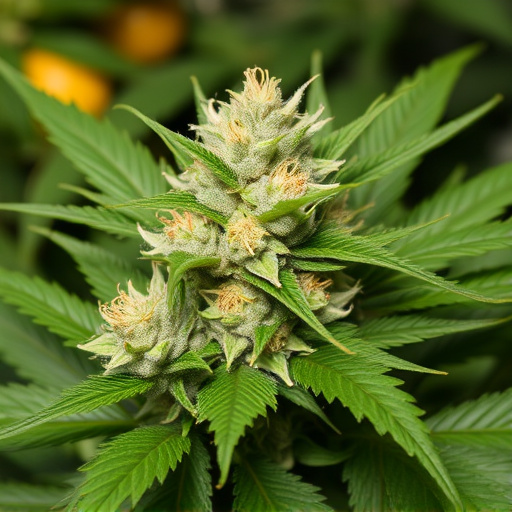Lemon cannabis strains, rich in cannabidiol (CBD) and limonene, have gained popularity for their calming effects without intoxicating properties. CBD interacts with the endocannabinoid system to regulate mood, while limonene positively influences neurotransmitters like serotonin and dopamine, reducing anxiety and depression. The evolving field of cannabis research aims to understand the interactions between cannabinoids, terpenes, and individual consumer profiles to develop precise formulations for emotional well-being. Long-term studies are crucial to assess safety and efficacy for chronic use, with further exploration needed on lemon cannabis strains' potential benefits for mood disorders and stress-related conditions.
Cannabis flower’s effect on mood and emotions is a fascinating subject, especially with the growing interest in its therapeutic potential. This article delves into the intricate relationship between cannabis and mental state, providing a comprehensive overview of how different strains, particularly the renowned lemon cannabis strains, can influence user experiences. We explore scientific insights, dissect popular beliefs, and examine future research directions to understand the complex interplay between these natural compounds and human emotions.
- The Impact of Cannabis on Mood and Emotion: A General Overview
- Exploring the Effectiveness of Lemon Cannabis Strains
- Considerations and Future Research Directions
The Impact of Cannabis on Mood and Emotion: A General Overview
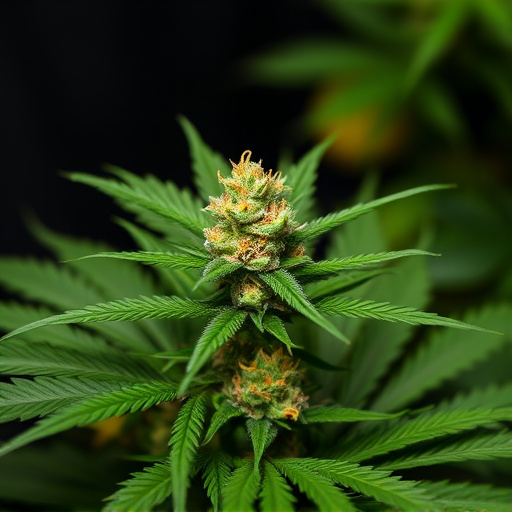
Cannabis has been studied for its complex interaction with human mood and emotions, offering a range of effects that vary depending on several factors, including strain composition and individual user biology. The plant’s most well-known psychoactive compound, tetrahydrocannabinol (THC), is known to influence mood by binding to receptors in the brain associated with pleasure, memory, and perception. This interaction can lead to feelings of euphoria and heightened sensory experiences, often described as a “high.” However, THC’s effects are not always positive; it can also induce anxiety, paranoia, or disorientation in some users, especially when consuming high-potency strains like certain lemon cannabis strains.
Beyond THC, another key compound, cannabidiol (CBD), has gained significant attention for its potential therapeutic benefits on mental health. Unlike THC, CBD does not produce a psychoactive effect but instead interacts with the endocannabinoid system to regulate mood and emotional responses. Research suggests that CBD may help reduce anxiety, depression, and even post-traumatic stress disorder (PTSD). Certain lemon cannabis strains known for their high CBD content have been popular among users seeking these calming and potentially therapeutic effects without the intoxicating sensations associated with THC.
Exploring the Effectiveness of Lemon Cannabis Strains
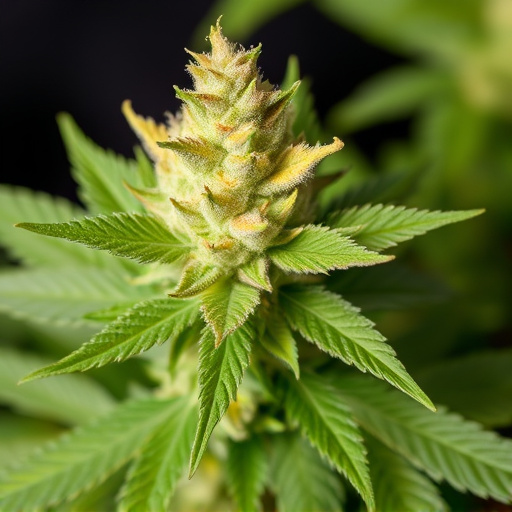
Lemon cannabis strains have gained popularity for their unique ability to offer a more nuanced experience compared to traditional varieties. These strains, often characterized by their citrusy aroma and flavor, contain high levels of limonene, a terpene known for its uplifting and mood-enhancing properties. Research suggests that limonene can interact with the endocannabinoid system, influencing neurotransmitters like serotonin and dopamine, which play significant roles in regulating mood and emotion.
Studies have shown that lemon cannabis strains may be particularly effective in alleviating symptoms of anxiety and depression, providing users with a sense of calm and well-being. The pleasant scent and taste of these strains can also contribute to a more positive experience, making them a preferred choice for those seeking a relaxing yet uplifting effect. Additionally, the higher concentration of limonene in lemon strains may offer potential therapeutic benefits beyond those provided by other cannabis varieties.
Considerations and Future Research Directions
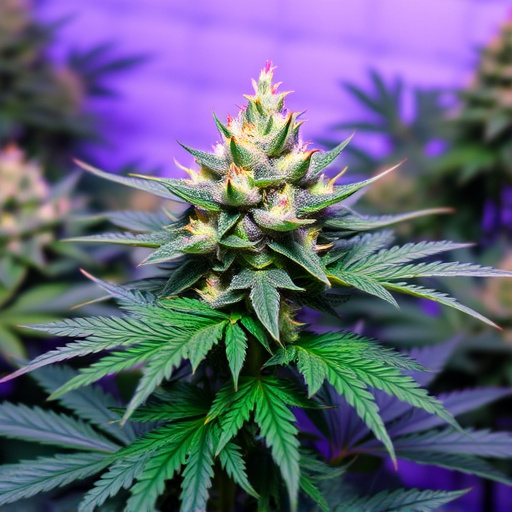
The study of cannabis’s impact on mood and emotions is an evolving field, particularly with the vast diversity of strains available, such as the popular lemon cannabis strains. Future research should explore the complex interplay between specific cannabinoids, terpenes, and individual consumer profiles. Understanding how these compounds interact with our endocannabinoid system could lead to more precise formulations tailored for various emotional needs, offering targeted support without adverse effects.
Additionally, long-term studies are needed to assess the safety and efficacy of chronic cannabis use on mental health. Further investigation into the potential benefits and risks of different strains, including lemon varieties, can provide valuable insights. This includes examining their effect on mood disorders, anxiety, and stress-related conditions, contributing to a more comprehensive understanding and responsible consumption of cannabis products.
Cannabis’ impact on mood and emotions is a complex subject, with recent studies highlighting the potential benefits of specific strains like lemon cannabis. These varieties offer unique chemovertical profiles, particularly in terpene content, which may contribute to uplifting and calming effects. While more research is needed to fully understand their therapeutic applications, exploring these citrusy strains could open new avenues for managing mood disorders and enhancing overall well-being. Incorporating lemon cannabis strains into future studies will provide valuable insights into their effectiveness and safety as potential treatments.


